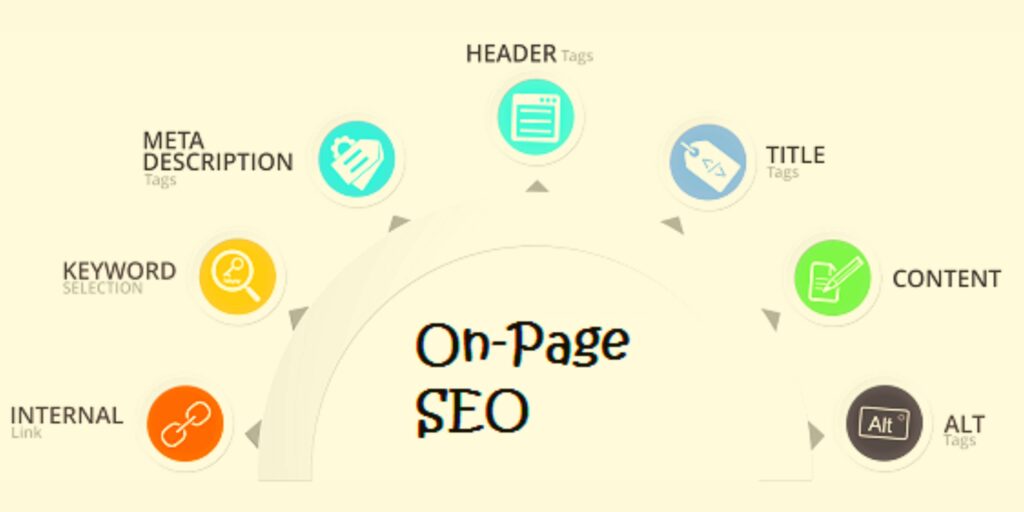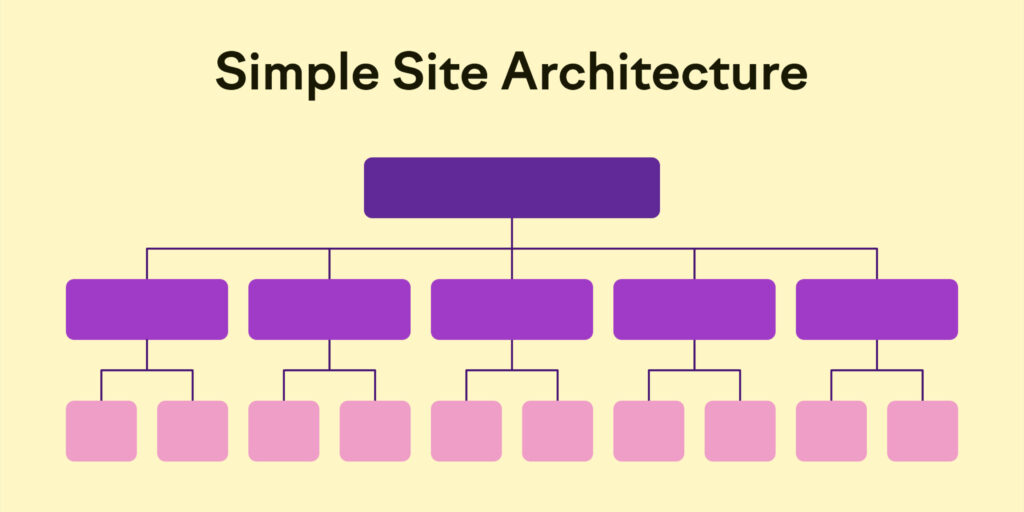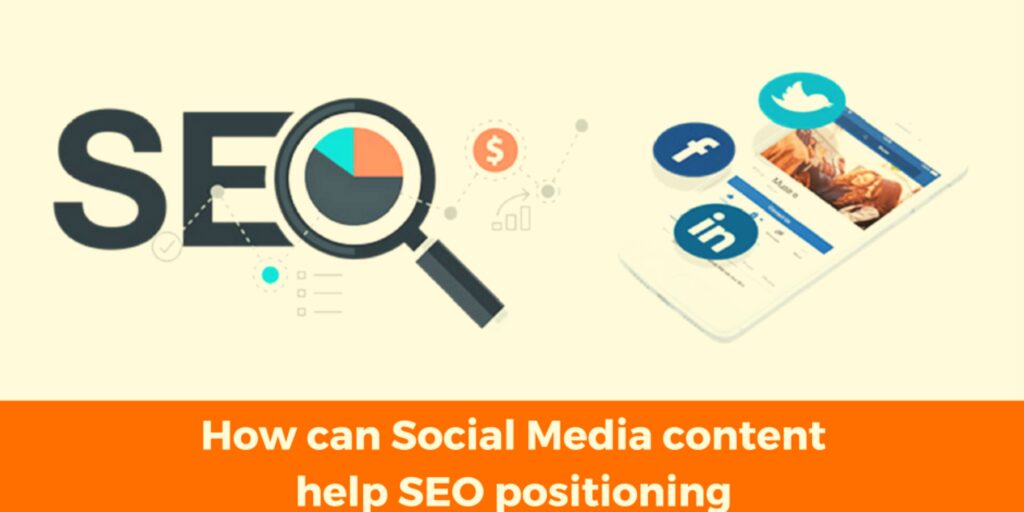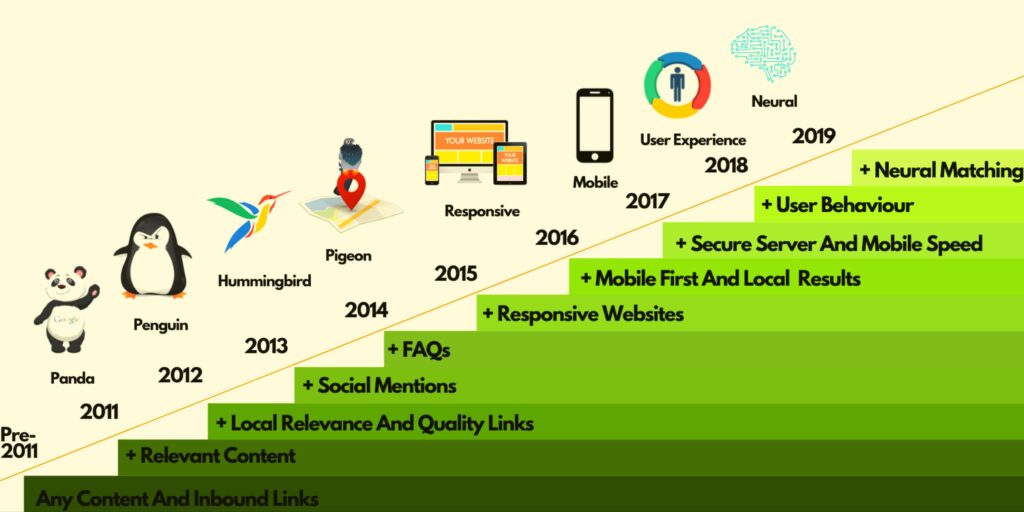Search engine optimization (SEO) is one of the most important aspects of digital marketing today. It’s a process designed to help websites rank higher in search engine results – thus increasing visibility, website traffic, and ultimately, revenues. But what exactly is SEO? What processes are used to optimize a website? And how can you ensure your SEO efforts are successful? In this blog post, we’ll answer these questions and provide an overview of the SEO landscape. Read on for more information about optimizing your website for maximum visibility and success.
Search Engine Optimization

SEO is a key component of any digital marketing strategy today. It’s the practice of optimizing your website, content, and other online assets for higher visibility on search engines like Google and Bing. In this blog post, we’ll discuss everything you need to know about SEO and its importance in a successful digital marketing campaign. From keyword research to link building, we’ll cover all the basics you need to get your website ranking high in organic search engine results pages (SERPs). Let’s get started!
In the modern digital landscape, search engine optimization (SEO) has become an essential part of any successful online presence. SEO is a complex and ever-changing field that requires ongoing knowledge and effort to stay competitive in your industry. But what exactly is SEO and how can you use it to your advantage? In this blog post, you will learn about the basics of SEO, why it’s important for your business, and some tips and tricks to get started on optimizing your website for better rankings in search engines.
What Is SEO(Search Engine Optimization)
Search engine optimization (SEO) is the process of optimizing a website for Google search with the goal of earning higher web traffic levels and improving the visibility of the site.
SEO encompasses both on-page and off-page tactics to improve a website’s search engine ranking. On-page SEO includes optimizing your website’s title tags, meta descriptions, header tags, images, and other elements to make your site more relevant to Google searches. Off-page SEO entails building links from other websites back to yours, as well as social media engagement and local listing optimization.
Good SEO can help a website rank higher in search engine results pages (SERPs), driving more traffic to the site. In turn, this can lead to increased brand awareness and higher conversion rates.
Why is SEO(Search Engine Optimization) important?

SEO is important because it is how you get your website to rank in Google search results. And since Google is the most popular search engine, ranking high in their results is crucial for drawing traffic to your site.
But SEO isn’t just about getting high rankings in Google. It’s also about helping potential customers find your site in the first place. So if you have a website or blog, making sure it is optimized for search engines should be a top priority.
SEO can be complex and there are a lot of factors that go into it, but there are also some simple things you can do to improve your website’s SEO. For example, using keywords throughout your site helps both Google and visitors understand what your site is about.
Another important factor is link building, which means getting other websites to link to yours. This helps show Google that your site is reputable and increases your chances of ranking higher in their results.
So if you want to draw more visitors to your site, improving your SEO should be one of your main goals.
How do search engines work?

Search engines are designed to help users find the information they need online. They do this by indexing websites and ranking them based on relevancy. When you type a query into a search engine, it looks through its index to find the most relevant results and displays them in order of relevance.
To create its index, a search engine crawls the web, following links from one page to another. As it crawls, it reads the content of each page and adds it to its index. The index is then used to determine the relevancy of a page when someone performs a search.
There are many different factors that go into determining relevancy, but some of the most important ones include the quality of the content, the keywords used on the page, and how popular the page is (based on inbound links).
Search engine optimization (SEO) is the process of improving these factors in order to increase a website’s ranking in search results. Businesses can raise their visibility and increase traffic by optimizing their websites for search engines.
How does SEO(Search Engine Optimization) work?
The process of raising a website’s position on search engines is known as SEO, or search engine optimization. The likelihood that someone will locate the site increases with its rating.
The usage of keywords and other marketing techniques are just a couple of the many elements that go into SEO. However, link development is among the most crucial SEO components. To do this, you must build links pointing from other websites back to your own. Search engines view these links as votes of confidence, and the more votes you have, the higher your ranking will be.
Of course, SEO is not an exact science, and there is no guarantee that following all the rules will result in a top ranking. However, by understanding how SEO works and using effective strategies, you can greatly improve your chances of achieving high rankings on search engines.
How can I learn Search Engine Optimization?
SEO is an ever-changing and complex field, making it difficult to learn and keep up-to-date with the latest best practices. However, there are a number of ways you can learn SEO, whether you’re looking for a comprehensive understanding or just some tips and tricks.
One way to learn SEO is to attend conferences and workshops dedicated to the topic. These events are usually held by industry experts and cover a range of topics related to search engine optimization. You can also find many online resources that offer helpful information on SEO. Look for blog posts, articles, infographics, and videos that can give you a better understanding of how search engines work and what you can do to optimize your site.
If you want a more hands-on approach, consider taking an online course or signing up for a class at a local college or university. There are many different programs available that can teach you the basics of SEO and help you develop the skills you need to be successful.
What Google wants
Google wants to deliver the best possible results to its users. This means providing them with relevant, high-quality search results that are easy to find and navigate.
To do this, Google looks at a number of factors when ranking websites in its search engine results pages (SERPs), including the quality of the website’s content. Content is one of the most important ranking factors for SEO, so it’s important to make sure that your website’s content is well-written, informative, and keyword-rich.
In addition to content, Google also takes into account a website’s design, structure, and URL when determining its rank in SERPs. So, it’s important to make sure that your website is designed for both users and search engines.
Finally, Google looks at the overall authority of a website when determining its rank in SERPs. Authority is determined by a number of factors, including the number and quality of inbound links pointing to a website. The more high-quality links you have pointing to your website, the higher your site will rank in Google’s search results.
SEO Strategies: Black Hat Vs. White Hat

SEO, or search engine optimization, is the process of improving the visibility and ranking of a website or web page in search engine results pages (SERPs). There are two main types of SEO strategies: black hat and white hat.
Black hat SEO techniques
Black hat SEO techniques are those that attempt to improve rankings in ways that are disapproved of by the search engines, or that violate the terms of service of the search engines. These techniques can result in your website being banned from the search engines. Examples of black hat SEO techniques include keyword stuffing, cloaking, and doorway pages.
White hat SEO techniques
White hat SEO techniques are those that improve rankings in ways that are approved of by the search engines. These techniques follow the guidelines set forth by the search engines and focus on providing a good user experience. Examples of white hat SEO techniques include optimizing for relevant keywords, creating quality content, and building links naturally.
Which type of SEO strategy you choose will depend on your goals and your resources. If you’re willing to take risks and don’t mind if your website gets banned from the search engines, then black hat SEO may be right for you. If you want to play it safe and ensure that your website complies with all of the guidelines set forth by the search engines, then white hat SEO is the way to go.
Search Engine Optimization Marketing Basics: The Complete Breakdown
SEO marketing basics can be broken down into a few key components: keyword research, on-page optimization, and off-page optimization.
Keyword research is the process of finding and targeting keywords that are relevant to your business and that potential customers are searching for. Once you have targeted a selection of keywords, you can then start optimizing your website for those keywords.
On-page optimization is the process of making sure that each page on your website is optimized for your target keywords. This includes things like adding keyword-rich titles and descriptions, as well as ensuring that your website’s content is relevant and informative.
Off-page optimization is the process of building up links to your website from other high-quality websites. This helps to improve your website’s visibility and authority in search engine results pages, which can lead to more traffic and sales.
Content

Quality & Intent
The quality of your content is important for two main reasons: first, because poor quality content can turn off potential customers and send them to your competitor’s site; second, because Google and other search engines are constantly working to improve their algorithms to identify and penalize sites with low-quality content.
To make sure your content is high quality, start by ensuring that it is original and well written. If you are outsourcing your content creation, be sure to vet the writers you are working with carefully. You should also avoid keyword stuffing (using too many keywords in a way that makes your content sound unnatural) as this will not only turn off readers but also get you penalized by Google.
In addition to being high quality, your content must also be relevant to what people are searching for. This means including the right keywords throughout your site so that search engines can easily index and rank your pages. But beware of using too many keywords, as this can result in keyword stuffing penalties from Google.
Freshness
Keep your content fresh by regularly adding new and relevant information. This could mean blog posts, articles, product descriptions, or even just images and videos. Google loves fresh content and will reward you with higher rankings if they see that you are regularly updating your site.
Keyword Research and Selection

Keyword research and selection is one of the most important aspects of search engine optimization (SEO). The right keywords can make all the difference in getting your website ranking high in search engine results pages (SERPs), while the wrong keywords can actually hurt your ranking.
Choosing the Right Keywords
Choosing the right keywords involves more than just finding words that describe your product or service. You also need to consider competition, search intent, and how popular those keywords are.
Competition Analysis
Competition analysis is an important part of keyword research. You want to choose keywords that you can rank for, but that also have enough competition that they’re worth targeting.
Search Intent
Search intent simply refers to what someone is looking for when they perform a search. Is it informational? Navigational? Transactional? Figuring out what searchers are looking for can help you choose better keywords.
Finally, you need to consider how popular the keywords you’re considering are. If nobody is searching for a particular keyword, it’s not going to do you any good. There are a number of tools that can help you with keyword research and selection, such as Google AdWords Keyword Planner and Moz Keyword Explorer.
On-Page SEO(Search Engine Optimization) Factors (HTML)

On-page SEO is the process of improving individual web pages to improve their search engine rankings and attract more relevant visitors. On-page SEO, as opposed to off-page SEO, which refers to links and other external signals, refers to both the content and HTML source code of a page that can be optimised.
Title Tags:
Title tags are one of the most important factors in SEO, as they tell search engines what your page is about. They should be unique and descriptive, and include your target keywords.
The keyword you want to rank with for that page should be in the title tag. Make sure the page itself has that term someplace. Use a term that your visitors would use. It’s fantastic to rank well in Google, but if it’s for a term that nobody searches for, it won’t help you much.
Meta Keywords:
Meta keywords are another important factor in SEO, as they help to tell search engines what your page is about. They should be relevant to your content and included in your title tag and other metadata.
Meta Description:
Meta descriptions are yet another important factor in SEO, as they give searchers a brief overview of what your page is about. Include your target keywords and make sure it’s an accurate representation of what’s on your page. The keyword you want to rank with for that page should be in the meta description of the page.
One to two-sentence summary of the material on your website should make up your meta descriptions. They ought to explain to the reader what to anticipate from your connection.
Schema:
Schema markup is an important part of SEO, as it helps search engines understand the content on your page. Include relevant schema markup on your pages to help improve your chances of appearing in rich results.
Subheadings:
Subheadings can be a helpful way to organize your content and make it more readable for both users and search engines. Use relevant keywords in your subheadings to help improve your SEO. The keyword you want to rank with for that page should be in the subheadings of the page.
Alt Text:
Alt text is important for accessibility and also helps improve your SEO by providing a text description of images on your site. Make sure to include appropriate alt text for all images on your website. The keyword you want to rank with for that page should be in the alt tag of the page.
URL Slug:
The URL slug is the part of the URL that comes after the domain name. It should be short and descriptive. The keyword you want to rank with for that page should be in the url of the page.
Off-Page SEO(Search Engine Optimization) Factors

Off-page optimization is the term used to describe all actions that may be made outside of the real website to raise it up the search results pages. These are steps that assist in producing as many high-quality incoming links as feasible.
It refers to SEO strategies used to raise a website’s ranks outside of the website itself. These strategies frequently include things like guest posting, link development, social media marketing, and more.
Off-page SEO aims to increase the trust and authority that visitors and search engines place on your website.
Link Building
Creating links to pages on your own website is known as link building. These links are referred to as backlinks in SEO.
A page may appear more authoritative to Google if it has more backlinks from high-authority websites. And that could raise the page’s ranking.
Content Marketing
Marketing through content is a crucial off-page SEO strategy. Publishing quality content is a powerful strategy to build backlinks, attract media attention, and demonstrate excellence.
Additionally, figuring out how to get that material via various channels can assist increase off-page signals.
Local SEO (GMB and Citations)
The practise of enhancing your online presence to raise local traffic, exposure, and brand recognition is known as local SEO. It stands on its own as a discipline of SEO.
However, some aspects of local SEO, such as Google Business Profile (formerly known as Google My Business) and NAP citations, are essential off-page SEO strategies.
Reviews
Reviews are a terrific method to build consumer confidence in your company.
Reviews are actually one of the most significant aspects that Google considers when determining your site’s E-A-T. They are therefore crucial to the success of your local SEO.
Google advises responding to every review. Bad and good. This demonstrates your appreciation for the patrons’ patronage and feedback. With our Listing Management feature, you may find reviews easily (and respond to them).
Events
The off-page SEO approach you use can benefit from events.
They not only have the ability to captivate your audience, but they can also help your company become more well-known. It may encourage social interaction and relationships.
For instance, when the event is being marketed, you can receive brand mentions. Or if participants later produce summaries.
Your event landing page might draw links as well. Perhaps attendees merely enjoy the event. Maybe a speaker wants to advertise it. Or influencers might spread it just because it will benefit their audiences.
Even these events may need more work to run smoothly, the buzz they create can be challenging to duplicate in other contexts. They’re also a superb way to get outstanding PR attention.
Technical SEO(Search Engine Optimization) Factors

Technical SEO refers to the procedures used to design and optimise a website so that search engines can quickly crawl, index, and display it.
The most of marketers and business owners use technical SEO to boost the chances that their website will rank highly in search engine results pages (SERPs).
- Sitemaps (XML & HTML)
- Robots.txt
- Crawl Errors
- Multiple URLs: Capital vs. Lowercase URLs
- Speed your site up
- Fix duplicate content issues
- SSL Certificate
- Minifying CSS & JavaScript Files
- Image Optimization
- HTML Errors / W3C Validation
- Mobile Optimization & Testing
- Forcing a Single Domain
- Consider enabling AMP
- Register your site with Webmaster Tools
Site Architecture

Easy to Crawl
Site architecture refers to the structure of a website and how the different pages on the site are linked together. A well-structured website is easy for users to navigate and for search engines to crawl, making it more likely to rank highly in search engine results pages (SERPs).
Duplicate Content
Duplicate content is one of the biggest issues faced by websites today. It occurs when there is more than one version of a piece of content available on the internet. This can happen if a website has multiple pages with identical or very similar content, or if other websites have copied your content without permission. Duplicate content can hurt your SEO because it confuses search engines and makes it difficult for them to determine which version of the content is more relevant.
Mobile-Friendliness
Mobile-friendliness is another important factor in site architecture. Your website needs to be optimised for mobile use because more and more people are utilising those devices to access the internet. Mobile-friendly websites are typically responsive, meaning they resize and rearrange themselves to fit on smaller screens. They also tend to have simpler designs and easier navigation than non-responsive sites.
Page Speed
Page speed is also a factor in SEO. Visitors won’t stay on a website if it takes too long to load, so faster page speeds can help improve your SEO. You can improve your page speed by optimizing your images and code, using caching, and reducing redirects.
HTTPS and SSL
HTTPS and SSL are two technologies that help keep websites. Although they are related, but not the same. In essence, HTTPS is a standard Internet protocol that encrypts online data and is a more sophisticated and secure version of the HTTP protocol. The encryption of the data is carried out through SSL, which is a component of the HTTPS protocol.
Trust

There are many factors that google looks at when it comes to ranking a website. One major factor is trust. Google wants to see that people trust your website before it will rank it high in the search results. There are a few ways you can show Google that your website is trustworthy.
Domain Age
One way is through having a good domain age. This means that your website has been around for awhile and is not a new, fly-by-night operation. People are more likely to trust a website that has been around for awhile than one that is brand new.
Bounce Rate
Another way to show Google that your website is trustworthy is through having a low bounce rate. This means that people who come to your website stay there and don’t immediately leave. This shows Google that people find your website useful and are not just bouncing off of it right away.
Authority
Finally, another way to show Google that your website is trustworthy is through having good authority. This means that your website is well-respected by other websites in your industry. If other websites are linking to yours, this tells Google that yours must be a good site worth checking out.
All of these factors (trust, authority, bounce rate, domain age) play into how high or low your website will rank in the search results. So if you want to improve your ranking, focus on improving these areas!
Links

Link Quality
The quality of a link is determined by a number of factors, including the website’s PageRank, the number of links on the page, and the anchor text of the link. The PageRank is a measure of the importance of a webpage as determined by Google. A higher PageRank indicates a more important webpage.
Anchor Text
The anchor text of a link is the text that is displayed when you hover over a link. The anchor text can give you an idea of what the linked page is about.
Number of Links
The number of links to a website can also affect its search engine ranking. If there are many links to a website, it may be seen as more important by search engines and given a higher ranking. The number of links on a page also affects the quality of a link. A page with fewer links is likely to have higher-quality links than a page with many links.
Social for Search Engine Optimization

Number of Shares
Social media plays an important role in SEO. The social signals that a website receives helps to improve its visibility and ranking in SERPs. The number of shares, likes, and +1s that a webpage receives helps to signal to search engines that the content is popular and relevant.
Quality of Shares
The quality of the websites that share your content also matters. If your content is being shared by high-quality websites, it will help to improve your visibility and ranking.
Google’s EAT Guidelines
Google’s EAT Guidelines are designed to help webmasters create high-quality content that is both informative and useful to users. By following these guidelines, webmasters can improve their chances of ranking well in Google search results.
Some of the key things that Google looks for when evaluating content include:
Expertise: Content should be written by experts who have a deep understanding of the topic at hand.
Authoritativeness: Content should be coming from sources that are known and trusted by users.
Truthfulness: Content should be accurate and truthful, without any misleading information.
Google also looks at other factors such as how easy it is for users to find the information they need, whether the content is engaging and well-written, and how often the content is updated.
SEO(Search Engine Optimization) and Google Algorithm Updates

The Google algorithm is a constantly evolving beast. In order to keep your website ranking high in search results, you need to stay up-to-date on the latest updates. Here are some of the most recent changes to the Google algorithm, and what they mean for your SEO strategy:
1. Mobile-First Indexing
Google now prioritises mobile versions of webpages when indexing websites. This means that if your website isn’t optimized for mobile devices, it will likely rank lower in search results. Make sure your website is responsive and easy to use on all devices, or you could see a drop in traffic.
2. RankBrain
RankBrain is an artificial intelligence system that helps Google interpret search queries and deliver more relevant results. It’s one of the biggest factors in the Google algorithm, and it’s constantly being updated and improved. Keep your SEO strategy focused on delivering quality content that answers users’ questions, and you’ll be sure to stay ahead of the curve with RankBrain.
3. Local Search Results
Local search results are becoming more important than ever before. If your business has a physical location, make sure you’re claiming your listing on Google My Business and optimize your information for maximum visibility. Include keywords relevant to your location in your content to make sure you’re showing up in local search results.
4.”Penguin” Update
The “Penguin” update was designed to target low
SEO(Search Engine Optimization) Marketing Guide: Conclusion
SEO marketing is not easy, but it is necessary if you want to be successful online. Digitalgyansg provide you an overview of what SEO marketing is and how it can help you achieve success with your online business. Armed with this knowledge, you can now start planning and implementing your own SEO marketing strategy. Remember to always keep your target audience in mind, and to focus on providing them with high-quality content that will help them find what they are looking for. With a little hard work and dedication, you can make your website a success.
Other SEO(Search Engine Optimization) Aspects
There are many other aspects to consider when optimizing your website for search engines. Here are a few more things to keep in mind:
-The title tag is one of the most important elements on your page, so make sure it accurately reflects the content of your page.
-Headings and subheadings help break up your content and make it easier to read, which is also good for SEO.
-Alt text helps describe images for those who can’t see them, and it’s also used by search engines to understand the context of your images.
-Internal linking helps search engines crawl your site and can also help users find more information on your site.
-Sitemaps help search engines index your pages and can be submitted to them directly to make sure they don’t miss anything.
SEO Marketing Frequently Asked Questions

1. What is SEO(Search Engine Optimization) marketing?
SEO marketing is the process of optimizing a website for search engines with the goal of improving the visibility and ranking of the site in search engine results pages (SERPs). SEO marketing can be done on both on-site and off-site elements of a website, and may involve activities such as keyword research, link building, and content optimization.
2. Why is SEO marketing important?
SEO marketing is important because it can help to improve the visibility and ranking of a website in SERPs, which can lead to increased traffic and conversions. A well-optimized website can also help to build trust and credibility with potential customers, which can further improve business results.
3. How does SEO marketing work?
SEO marketing works by improving the visibility and ranking of a website in SERPs through various techniques, such as keyword research, link building, and content optimization. By improving the visibility of a site, businesses can attract more visitors who are looking for what they offer. Once on the site, these visitors can be converted into customers through effective Calls-to-Action (CTAs) and other conversion optimization strategies.
4. What are some common SEO(Search Engine Optimization) marketing techniques?
There are many different techniques that can be used as part of an effective SEO marketing strategy. Some common techniques include keyword research, link building, content optimization, and social media promotion. Businesses should experiment with different techniques to see

